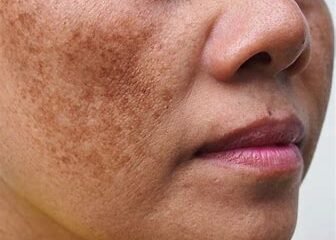Skin Care
Morning and Night Skincare Routines for Various Skin Concerns.

You might think finding the right skincare routine is time-consuming, but it’s a fulfilling investment in yourself.
By crafting a personalized morning and night skincare ritual, you’ll not only address your specific concerns but also empower yourself to face each day with confidence.
Whether you’re managing acne, seeking to soothe sensitivity, or wanting to ward off wrinkles, we’ve got you covered. This brief guide will walk you through establishing effective routines that cater to your individual skin needs.
You’ll learn to select products and techniques that nurture and protect your skin, ensuring you’re at your best to help others.
Remember, a consistent skincare regimen is a form of self-care that enables you to offer the world the best version of yourself.
Key Takeaways
- It is important to start the morning skincare routine with a gentle cleanser to remove excess oil and dirt.
- For targeted treatment, apply a night cream or serum in the evening skincare routine.
- Different skin types require different types of products and ingredients to address specific concerns.
- Always remember to include the basics in your skincare routine, such as cleanser, moisturizer, and sun protection.
Morning Skincare Fundamentals
Starting off your day with a gentle cleanser, you’ll effectively remove excess oil and dirt from your face without stripping the skin of its natural moisture. This step is fundamental in your morning skincare routine, preparing your skin to absorb the beneficial ingredients that follow.
Next, it’s time to rejuvenate your eyes. Gently apply an eye cream to address concerns like dark circles and puffiness. This act of care not only benefits your skin but also prepares you to serve others with a fresh and alert appearance.
As you continue, remember the importance of protection. A face sunscreen should be your shield against the harmful effects of the sun. Opt for a tinted sunscreen SPF product that can provide both protection and a light coverage. It’s a mindful way to safeguard your skin while enhancing your natural look.
Evening Routine Essentials
Transitioning from your morning skincare fundamentals, your evening routine kicks off with a thorough cleansing to wash away the day’s accumulation of pollutants and makeup. After a long day of serving others, it’s crucial to treat your skin with the same dedication and care. Your nighttime skincare routine is your chance to remove makeup completely, ensuring your pores aren’t clogged and your skin can breathe and recover overnight.
Once your skin is clean, you might opt for a toner that can either hydrate or provide a deeper clean, removing any residual grime. A couple of times a week, consider an exfoliating toner to slough away dead skin cells, keeping your skin at night smooth and ready to absorb active ingredients more effectively.
The heart of your evening ritual should be a night cream or serum, chosen for its targeted treatment properties. Whether you’re combating dryness, acne, or signs of aging, these products work in harmony with your skin’s natural nighttime repair processes. Don’t forget to dab on an eye cream to pamper the delicate area under your eyes.
Your skin’s nocturnal journey is an essential part of your overall mission to nurture and provide care, not only to others but to yourself as well.
Identifying Your Skin Type
Before delving into personalized skincare routines, you’ll need to determine your skin type, as this is critical in selecting products that’ll work best for you. Understanding your skin’s needs allows you to serve it better, ensuring you provide the most beneficial care. Here’s a quick guide to help you identify which category you fall into:
- Dry Skin Types
- Often feels tight and may have flaky patches
- Needs hydrating ingredients like ceramides and hyaluronic acid
- Oily and Combination Skin
- Oily skin appears shiny, especially in the T-zone area
- Combination skin has both oily and dry areas
- Benefits from oil-controlling ingredients like salicylic acid
- Normal Skin Types
- Neither overly dry nor oily
- Typically has a balanced sebum production
- Sensitive Skin
- May experience redness, itching, or burning
- Requires gentle products free from harsh chemicals
Targeting Specific Skin Concerns
In addressing your unique skin concerns, you’ll want to customize both your morning and nighttime skincare routines to effectively target and manage issues like acne, signs of aging, dryness, oiliness, or sensitivity. Each concern requires specific ingredients and products to provide the best care and enhance your skin’s health.
For instance, if acne treatment is your focus, incorporating cleansers with benzoyl peroxide or salicylic acid in your morning routine can help control breakouts. At night, you might use a targeted treatment to remove dead skin cells and prevent clogged pores.
Should the appearance of fine lines be a concern, products with retinol or peptides are your allies. Apply them at night to support skin regeneration and reduce signs of aging without exposure to sunlight which can diminish their effectiveness.
For those with dry skin, using hydrating ingredients like ceramides or hyaluronic acid in both morning and evening routines will help maintain moisture levels. Conversely, managing oily skin calls for products that balance your skin’s pH and control excess oil, like those containing witch hazel.
Sensitive skin demands gentle, fragrance-free options that won’t cause irritation. By tailoring your regimen, you can address and soothe your specific skin needs, ensuring you’re always providing the best service to your skin.
Product Selection Guide
Choosing the right skincare products is essential in tailoring your routine to meet your skin’s unique needs, whether you’re combating acne, wrinkles, dryness, oiliness, or sensitivity. Your product selection guide should be thoughtful and precise, ensuring each item in your skin care routine harmoniously addresses your skin type-specific concerns.
Here are some pointers to assist you in serving your skin with the utmost care:
- Understand Your Skin Type:
- Oily: Look for lightweight, non-comedogenic formulas.
- Dry: Seek out rich creams with ingredients like hyaluronic acid.
- Sensitive: Choose hypoallergenic products to minimize irritation.
- Address Specific Concerns:
- Acne: Salicylic acid and benzoyl peroxide can be your allies.
- Aging: Retinoids and antioxidants may help reduce signs of aging.
- Pigmentation: Consider products with vitamin C or niacinamide.
- Don’t Forget the Basics:
- Cleanser: Gentle yet effective, regardless of your skin type.
- Moisturizer: Even oily skin needs hydration—choose oil-free if needed.
- Sun Protection: Always include SPF in your morning routine.
Incorporating Spa Treatments
You’ll enhance your daily skincare regime by incorporating customized spa treatments that target your unique skin concerns.
Imagine the rejuvenating effects of a professional facial that begins with a gentle, exfoliating toner, preparing your skin for the deeper benefits of a spa session. As you seek to serve your skin’s needs, consider treatments that include glycolic acid peels. These peels can significantly improve texture and tone, particularly for those dealing with signs of aging or hyperpigmentation.
Your esthetician might also recommend a deeply hydrating cream to quench thirsty skin, ensuring you leave the spa with a supple, radiant complexion. If you’re looking to restore balance and add a touch of luxury, a carefully-selected face oil can provide the necessary nutrients and hydration to maintain a healthy glow. Meanwhile, the calming properties of rose water can soothe your skin, making it an excellent finish to any spa treatment.
Incorporating these professional touches into your skincare routine not only elevates your experience but also ensures that the care you’re providing is as thoughtful and effective as possible.
With regular spa visits, you’ll notice a marked improvement in your skin’s health and vitality, reflecting your commitment to serving its needs with expert care.
Routine Maintenance Tips
To maintain your skin’s health and address specific concerns, it’s crucial you establish a daily regimen that includes both morning and nighttime routines. Below are some maintenance tips to ensure your routine for all skincare types remains effective:
- Stick to the Basics:
- Double cleansing is a crucial first step in your nightly routine, especially if you wear makeup or sunscreen.
- In the morning and nighttime skincare, hydration is key; use products that maintain moisture balance.
- Protect Against Damage:
- Sunscreen with at least SPF 30 should be a non-negotiable part of your morning routine to shield against environmental stressors.
- Antioxidant-rich skincare products can help fight free radical damage throughout the day.
- Adapt and Adjust:
- Be mindful of how your skin reacts to products and be open to making alterations to your routine.
- Regularly assess your skin’s needs, as they can change with seasons, age, or lifestyle.
Frequently Asked Questions
What Should My Morning and Night Skincare Routine Be?
Aren’t you eager to have radiant skin? Start with a gentle cleanser, follow with toner, spot treatment, serum, and eye cream. At night, cleanse again, apply night cream, and don’t forget eye cream!
What Is a Good AM and PM Skincare Routine?
A good AM and PM skincare routine includes cleansing, toning, treating with serums, and moisturizing. You’ll also want to apply sunscreen in the morning and a repairing night cream before bed.
What Are the 7 Steps of Skincare?
You should follow these seven skincare steps: cleanse, tone, exfoliate, treat, moisturize, apply eye cream, and use sunscreen to best serve your skin’s health and radiance throughout the day.
What Is the Correct Skincare Routine Order?
You should start with a cleanser, follow with toner, then apply any treatments or serums. Next, moisturize, and always finish with sunscreen in the morning or a night cream in the evening.
Conclusion
You’ve now got the full scoop on customizing your skincare routines for day and night. Remember, consistency is key, so stick to your guns and maintain these rituals daily.
Whether it’s battling dry patches or keeping oil at bay, your tailored regimen is your skin’s knight in shining armor. With the right products and a bit of TLC, you’ll be well on your way to glowing skin round the clock.
Keep at it, and watch your skin thank you!
Skin Care
How to Get Rid of Blackheads and Avoid Getting Them Again
Troubled by persistent blackheads? Uncover proven strategies and daily habits to achieve clear, smooth skin

You’ve just finished a long day, and as you begin your nightly skincare routine, you’re greeted by a familiar and unwelcome sight: a smattering of blackheads across your nose and chin. Despite your best efforts, they seem to persist, each tiny, darkened pore a stubborn reminder of your ongoing battle with your skin. But take heart, because the path to a clearer complexion doesn’t have to be a mystery. Armed with the right knowledge and tools, you can send those blackheads packing and learn how to prevent their return. In the following sections, we’ll explore the science behind these blemishes, effective treatments you can do at home, and professional solutions that could offer long-term relief. But first, let’s dig into the daily habits and skincare missteps that might be unwittingly contributing to the problem, and how minor adjustments could make a major difference in keeping your skin smooth and blackhead-free.
Key Takeaways
- Salicylic acid-based products and retinoid creams are effective at-home treatments for blackheads.
- Professional dermatological solutions like prescription-strength retinoids, chemical peels, microdermabrasion, and comedone extractors can be used for more severe cases.
- Daily prevention techniques include washing the face twice daily, using noncomedogenic products, applying sunscreen, avoiding touching the face, and changing pillowcases regularly.
- Harsh scrubs, manual extractions, popping blackheads, and inconsistent care can worsen blackheads and lead to inflammation, damage, infection, and scarring. Gentle, consistent care and evidence-based treatments are key to getting rid of blackheads and preventing their recurrence.
Understanding Blackheads
To effectively tackle blackheads, it’s crucial to recognize that they stem from a complex interplay of sebum accumulation, dead skin cell buildup, and bacterial growth within your hair follicles. Often referred to as open comedones, these blemishes are a form of comedonal acne that’s visible on the skin’s surface as small, dark spots primarily due to the oxidation of the material within the pore.
If you’re committed to helping others manage this skin concern, it’s essential to understand the role of sebaceous glands in blackhead formation. These glands produce sebum, an oily substance meant to lubricate the skin and hair. However, overproduction, influenced by hormonal changes or genetic factors, can lead to congestion within the hair follicle.
The accumulation of dead skin cells exacerbates this blockage, creating an ideal environment for the C. acnes bacteria to thrive. This bacterial presence can contribute to the inflammation seen in more severe cases of acne. By addressing these factors with evidence-based treatments such as retinoids, which regulate skin cell turnover, and salicylic acid, which dissolves buildup, you can provide effective solutions for those struggling with blackheads. Remember, a gentle approach to your skins health will yield the best results.
At-Home Treatment Options
Several at-home treatment options exist for managing blackheads, including the use of salicylic acid-based products and retinoid creams that effectively unclog pores and encourage skin renewal. When selecting a salicylic acid wash, ensure it’s formulated to exfoliate skin cells gently, preventing the accumulation of debris that can lead to blackheads. This ingredient is well-known for its ability to penetrate follicles and dissolve the intercellular glue that holds skin cells together, facilitating the unclogging of pores.
Additionally, incorporating noncomedogenic products into your skincare routine can prevent the blockage of pores by avoiding ingredients that are likely to cause comedones, (blackheads and whiteheads). Noncomedogenic products are specifically designed to not clog pores, which is essential for maintaining clear skin.
Retinoid creams, derived from vitamin A, are another cornerstone of blackhead prevention and treatment. They not only unclog pores but also speed up cell turnover, helping to prevent the formation of new blackheads. While over-the-counter options are available, you may require a prescription for stronger formulations.
For a more intensive treatment, consider a chemical peel, which uses acids such as salicylic, glycolic, or retinoic to deeply exfoliate and clear out pores. Be mindful that these should be performed cautiously, and you should always follow up with proper moisturization to support skin barrier integrity.
Professional Dermatological Solutions
When tackling persistent blackheads, consulting a dermatologist can provide you with access to specialized treatments and personalized advice that go beyond over-the-counter products. These professionals are equipped to evaluate your skin and tailor a regimen specifically for your needs.
Professional dermatological solutions often include prescription-strength retinoids, which accelerate cell turnover and prevent the clogging of pores. Chemical peels, another effective option offered by dermatologists, use a potent solution to exfoliate the skin deeply, removing dead skin cells and debris that contribute to blackheads.
In-office treatments, such as microdermabrasion, can also be highly beneficial. This procedure gently removes the upper layer of dead skin, promoting a clearer and more rejuvenated complexion. Additionally, a skilled professional might use a comedone extractor, a specialized tool designed to safely remove blackheads without damaging the surrounding skin.
Your dermatologist will also guide you in selecting appropriate noncomedogenic skincare products, reducing the likelihood of future blackheads. Regular follow-ups allow for adjustments in your treatment plan and address new concerns as they arise, ensuring ongoing support in your quest for clear skin. Trust in professional dermatological solutions to effectively manage your blackheads and maintain healthy, radiant skin.
Daily Prevention Techniques
Incorporating a regular facial cleansing routine with a non-abrasive cleanser can significantly reduce the risk of developing blackheads. A salicylic acid cleanser is particularly effective as it penetrates clogged pores and dissolves the build-up of excess oil and dead skin cells. Remember, maintaining a consistent skincare regimen is one of the most reliable daily prevention techniques.
To further prevent new ones from forming and to care for your skin, consider these additional steps:
- Wash your face twice daily: Especially in the morning, before bed, and after sweating to remove impurities.
- Choose noncomedogenic products: These won’t clog your pores, helping to prevent blackheads.
- Apply sunscreen: Protect your skin from the sun to reduce oil production and prevent pore enlargement.
- Keep your hands away: Avoid touching your face to minimize the transfer of oil and bacteria.
- Change pillowcases regularly: This simple habit can reduce the presence of oils and bacteria on your skin.
Regularly using noncomedogenic moisturizers and avoiding the temptation to pick or squeeze blackheads are also crucial for keeping your skin clear. By following these evidence-based suggestions, you’ll be better equipped to serve yourself and maintain a blackhead-free complexion.
Common Blackhead Mistakes
While striving for a clear complexion, it’s crucial to avoid certain common mistakes that can exacerbate blackhead issues rather than alleviate them. Harsh scrubs may seem like a quick fix to remove blackheads, but they often strip away natural oils, prompting your skin to produce even more oil. This overproduction can lead to more stubborn blackheads and a cycle of skin issues.
When you opt for manual extractions or use suction devices, you’re risking inflammation and potential damage to your sensitive skin. These methods might provide immediate gratification, but they can also lead to more serious skin conditions or broken blood vessels, especially if the blackheads are deep below the skin’s surface. Moreover, popping blackheads is not only unsanitary but can also push bacteria deeper, causing an infection and potential scarring.
To prevent blackheads effectively, it’s better to rely on chemical or physical exfoliants designed for regular use and suitable for sensitive skin types. Over-exfoliating can irritate your skin, disrupting its barrier function and leading to excessive oil production. Remember, gentle, consistent care and scientifically backed treatments are key to maintaining a healthy, clear complexion.
Frequently Asked Questions
How Do You Stop Blackheads From Coming Back?
To prevent blackheads from returning, you’ll want to maintain a consistent skincare routine with salicylic acid, avoid heavy makeup, and resist squeezing them to keep your pores clear and reduce oil buildup.
What Causes a Blackhead to Keep Coming Back?
You’re witnessing stubborn blackheads return due to excess oil production, dead skin cell accumulation, and hormonal shifts. Combat them with non-comedogenic products and regular, gentle exfoliation to maintain clear, service-oriented skincare routines.
How Do You Get Rid of Blackheads Permanently?
To permanently eliminate blackheads, you’ll need a consistent skincare routine with salicylic acid, retinoids, and professional treatments, avoiding irritants and pore-clogging products to maintain clear, healthy skin over time.
How Do You Get Rid of Repeat Blackheads?
You’re battling a relentless foe, but with the right strategy, victory’s within reach. Incorporate salicylic acid cleansers and topical retinoids, exfoliate judiciously, and seek professional treatments to banish repeat blackheads effectively.
Skin Care
What to Do About Crepey Skin

Are you tired of the troubling texture of crepey skin? The signs of aging can be difficult to accept, but fear not, there are solutions. In this article, we will explore the various approaches to improve the appearance of crepey skin. From topical treatments to in-office procedures, there are options available that can help you achieve a smoother, more youthful complexion. But before we dive into the details, let’s first understand what causes crepey skin and why it happens in the first place. Stay tuned to discover the secrets behind addressing this common skincare concern.
What causes crepey skin?
Crepey skin is caused by various factors, including UV radiation, significant weight fluctuation, alcohol consumption, lack of moisture in the skin, and certain medications such as prednisone. UV radiation from the sun is a major contributor to crepey skin. Prolonged exposure to the sun’s harmful rays can damage the collagen in your skin, leading to loss of elasticity and the formation of wrinkles. Protecting your skin from the sun by using sunscreen and wearing protective clothing can help prevent crepey skin caused by sun damage.
Significant weight fluctuation can also contribute to crepey skin. When you gain or lose weight rapidly, it can cause the skin to stretch or shrink, resulting in a loss of elasticity. Maintaining a stable weight through a balanced diet and regular exercise can help prevent crepey skin caused by weight fluctuations.
Alcohol consumption can dehydrate the skin, leading to a lack of moisture and making it more prone to crepey skin. Limiting your alcohol intake and ensuring you stay hydrated by drinking plenty of water can help keep your skin moisturized and prevent crepey skin.
Certain medications, such as prednisone, can also contribute to the development of crepey skin. These medications can affect collagen production and lead to thinning of the skin. If you are taking any medications that may be causing crepey skin, it is important to discuss this with your healthcare provider to explore alternative options.
Incorporating skincare products that contain vitamin C can also help prevent crepey skin. Vitamin C is known to boost collagen production and improve the overall appearance of the skin. Using a daily moisturizer or serum that contains vitamin C can help maintain the elasticity and firmness of your skin.
How to get rid of crepey skin
Looking to get rid of crepey skin? There are several ways you can improve the appearance and texture of your skin. Incorporating certain products and making changes to your skin care regimen can help prevent and reduce crepey skin. One key ingredient to look for in skin care products is vitamin C. Vitamin C is known to boost collagen production, which can improve the elasticity and firmness of your skin.
To improve crepey skin, consider using topical creams or serums that contain vitamin C. These products can be applied directly to the affected areas and can help stimulate collagen production, reducing the appearance of crepiness over time. Additionally, incorporating a daily moisturizer with hyaluronic acid can help keep your skin hydrate and maintain its elasticity.
In addition to using vitamin C products, it is important to protect your skin from further damage. Make sure to use a broad-spectrum sunscreen with SPF 30 or higher to shield your skin from harmful UV radiation. UV exposure can accelerate the breakdown of collagen and elastin, leading to more pronounced crepey skin.
Aside from using products, there are other steps you can take to improve the appearance of crepey skin. Consider incorporating foods rich in antioxidants into your diet, such as fruits and vegetables. Antioxidants can help protect your skin from free radicals and promote overall skin health. Regular exercise and stress management can also contribute to healthier, more youthful-looking skin.
Frequently Asked Questions
Can You Really Get Rid of Crepey Skin?
Yes, you can really get rid of crepey skin. Consult a dermatologist or skincare professional for personalized treatment options, like topical creams and in-office procedures. Lifestyle changes and regular follow-up appointments can also help improve the appearance of your skin.
Is Crepey Skin Reversible?
Yes, crepey skin is reversible to some extent. Treatments like retinoid creams, in-office procedures, and lifestyle changes can improve its appearance. Consulting a dermatologist or skincare professional is important for personalized treatment options.
What Vitamin Is Lacking for Crepey Skin?
The vitamin lacking for crepey skin is vitamin C. It’s important for collagen production and skin elasticity. You can improve the appearance by increasing your intake through diet or supplements, and using topical creams or serums.
Why Is My Skin Crepey All of a Sudden?
Your skin may become crepey suddenly due to factors like UV radiation, weight fluctuation, alcohol, dryness, and certain medications. To address this, consult a dermatologist for personalized treatment options and follow-up appointments.
Skin Care
Skin Care Products That Diminish Hyperpigmentation
Pigmentation-correcting skin care products are the key to achieving a more even complexion, but do you know which ingredients can make a real difference?

Dealing with hyperpigmentation can be frustrating, and finding the right skin care products to address it is crucial for achieving a more even complexion. You may have tried various creams and serums without seeing significant results, but there are specific ingredients and formulations that can make a real difference. Understanding how these products work and the best ways to incorporate them into your routine is key to achieving the results you desire. But what exactly are these magical ingredients and how can they help you achieve a more radiant and even skin tone?
Key Takeaways
- Skin brightening serums with key ingredients like Vitamin C, Glycolic Acid, Salicylic Acid, Niacinamide, and Retinol are effective in reducing hyperpigmentation and promoting an even skin tone.
- Hyperpigmentation treatments such as Vitamin C serums, Tranexamic Acid creams, Azelaic Acid lotions, and Niacinamide treatments are recommended for reducing dark spots and improving skin texture.
- Dermatologist-recommended dark spot correctors, like SkinMedica Lytera 2.0 Pigment Correcting Serum, containing ingredients like niacinamide, tranexamic acid, vitamin C, retinol, and azelaic acid, are effective for addressing hyperpigmentation concerns in various skin types.
- Fast-acting hyperpigmentation solutions involve using products with potent ingredients like azelaic acid, vitamin C, kojic acid, alpha-arbutin, retinol, glycolic acid, and salicylic acid, along with consistent sunscreen application to prevent further sun damage and discoloration. Consistency and commitment are key for achieving the best results.
Top 10 Skin Brightening Serums
When it comes to addressing hyperpigmentation and achieving a brighter, more even skin tone, incorporating a high-quality skin brightening serum into your daily skincare routine can make a significant difference. The first key ingredient to look for in skin brightening serums is vitamin C, which is known for its ability to brighten and even out skin tone, reduce dark spots, promote collagen production, and protect against sun damage. Another essential ingredient to consider is glycolic acid, which helps to exfoliate the skin and fade hyperpigmentation over time. Salicylic acid is also beneficial, especially for those with acne-prone skin, as it addresses hyperpigmentation without causing breakouts. Niacinamide is another ingredient to keep in mind, as it helps to improve the appearance of enlarged pores, uneven skin tone, and fine lines. Lastly, retinol is known for its ability to promote skin renewal and enhance collagen production, which can contribute to a more even skin tone. By incorporating these key ingredients into your skincare routine, you can effectively combat hyperpigmentation and achieve a brighter, more radiant complexion.
Best Hyperpigmentation Treatments of 2024
Looking for the best hyperpigmentation treatments of 2024? When it comes to addressing dark spots and uneven skin tone, the best products are those that are specifically formulated to diminish hyperpigmentation effectively. Consider the following options for the best hyperpigmentation treatments:
- Vitamin C Serums: These products are packed with antioxidants that help to brighten the skin and fade dark spots over time. Look for serums with stable forms of vitamin C for maximum effectiveness.
- Tranexamic Acid Creams: Tranexamic acid is known for its skin-brightening properties and is effective in reducing hyperpigmentation, especially for those with melasma or post-inflammatory hyperpigmentation.
- Azelaic Acid Lotions: Azelaic acid not only targets hyperpigmentation but also helps to improve overall skin texture, making it a great option for those dealing with both dark spots and uneven skin.
- Niacinamide Treatments: Niacinamide is a versatile ingredient that not only helps to reduce hyperpigmentation but also offers additional benefits such as reducing the appearance of pores and improving skin elasticity.
These products, when used consistently, can help diminish hyperpigmentation and promote a more even skin tone, providing you with the best results in 2024.
Dermatologist-Recommended Dark Spot Correctors
You can find dermatologist-recommended dark spot correctors for various skin types, each containing effective ingredients like vitamin C, retinol, niacinamide, and azelaic acid. These products are formulated to target hyperpigmentation and are recommended by board-certified dermatologists for their efficacy. For instance, SkinMedica Lytera 2.0 Pigment Correcting Serum is a popular choice as it contains niacinamide and tranexamic acid, which are known to address hyperpigmentation concerns. Azelaic acid, another active ingredient found in some dark spot correctors, is particularly beneficial for those with sensitive skin. Dermatologist-recommended dark spot correctors cater to a wide range of skin types, including mature and acne-prone skin, ensuring that individuals with different needs can find suitable products. When seeking these products, consider the advice of a board-certified dermatologist to determine the most effective dark spot corrector for your specific skin concerns. Remember to incorporate these products into a comprehensive skincare routine, including the use of sunscreen, to achieve the best results in diminishing hyperpigmentation.
Fast-Acting Hyperpigmentation Solutions
Building on the dermatologist-recommended dark spot correctors discussed previously, fast-acting hyperpigmentation solutions offer targeted and effective ingredients to quickly diminish dark spots and uneven skin tone. When looking for fast-acting hyperpigmentation solutions, consider the following:
- Potent Ingredients: Look for products containing potent ingredients such as azelaic acid, vitamin C, kojic acid, and alpha-arbutin, which inhibit pigment production and brighten the skin.
- Cell Turnover: Seek products with ingredients like retinol, glycolic acid, and salicylic acid, as they increase cell turnover to diminish hyperpigmentation and promote a more even skin tone.
- Sun Protection: Opt for solutions that emphasize the importance of sunscreen to prevent further sun damage and discoloration. Daily SPF protection is essential to maintain the results of fast-acting hyperpigmentation solutions.
- Consistency: Commitment and consistency are crucial for achieving the best results. Follow a personalized skincare routine that addresses your specific concerns and incorporate fast-acting hyperpigmentation solutions as an effective choice for brightening and evening out your skin tone.
Effective Over-the-Counter Products
When treating hyperpigmentation, it's important to consider effective over-the-counter products that contain ingredients such as azelaic acid, vitamin C, kojic acid, and alpha-arbutin. These ingredients are known to inhibit pigment production and improve skin texture, helping to reduce the appearance of dark spots and uneven skin tone. To aid in your search for the right product, consider the following table for popular over-the-counter hyperpigmentation products:
| Product Name | Key Ingredients |
|---|---|
| Product A | Vitamin C, Azelaic Acid |
| Product B | Kojic Acid, Alpha-Arbutin |
| Product C | Tranexamic Acid, Niacinamide |
| Product D | Vitamin C, Salicylic Acid |
When selecting over-the-counter products, it's always advisable to consult with a board-certified dermatologist, who can provide personalized recommendations based on your skin type and specific concerns. Additionally, it's essential to prioritize the health of your skin barrier, especially when using products with active ingredients. Be sure to incorporate these products into a comprehensive skincare routine, including daily sunscreen application, to protect against further sun damage and maintain an even skin tone.
Frequently Asked Questions
What Skincare Product Gets Rid of Hyperpigmentation?
To get rid of hyperpigmentation, use products with vitamin C, tranexamic acid, and retinol. Consistent use and daily SPF are crucial. Follow a personalized skincare routine that addresses your specific concerns for the best results.
What Fades Hyperpigmentation the Fastest?
To fade hyperpigmentation the fastest, use products with vitamin C, tranexamic acid, and retinol. Consistency is key, and don't forget SPF. Personalize your skincare routine to address specific concerns and protect against sun damage.
What Really Removes Hyperpigmentation?
To remove hyperpigmentation, focus on consistent use of products with ingredients like vitamin C, tranexamic acid, and retinol. Combine them with daily SPF and a personalized skincare routine to effectively fade dark spots and uneven skin tone over time.
Does Anything Really Work for Hyperpigmentation?
Yes, something really works for hyperpigmentation! Consistently using skin care products with ingredients like vitamin C, tranexamic acid, and retinol can help fade dark spots over time. Don't forget daily SPF for protection.
-

 Skin Care2 years ago
Skin Care2 years agoSkin Care Products That Diminish Hyperpigmentation
-

 Skin Care2 years ago
Skin Care2 years agoUltimate Guide to Identifying Your Skin Type
-

 Brow Care2 years ago
Brow Care2 years agoWhy Brow Gels Can Cause Brows to Fall Out
-

 Brows2 years ago
Brows2 years agoHow to have Thicker Eyebrows
-

 Homemade Beauty2 years ago
Homemade Beauty2 years agoRecipes for Homemade Facials
-

 Lip Care2 years ago
Lip Care2 years agoVegan Lip Care: The Best Cruelty-Free Products
-

 Hair-Styling2 years ago
Hair-Styling2 years agoEasy Hairstyles for Busy Mornings.
-
Waxing2 years ago
Tools for at Home Waxing




